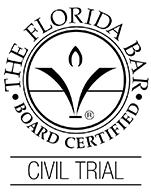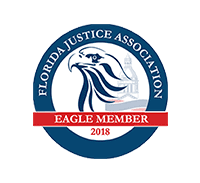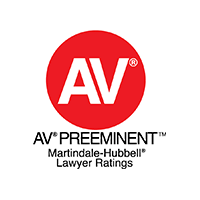The statute of limitations for workers’ compensation in Florida is two years. Once this period has passed, you generally cannot file a workers’ compensation claim that covers medical expenses, lost wages, or death benefits. However, some caveats apply to this rule that could allow you to recover workers’ comp benefits if you miss the deadline.
What Is a Statute of Limitations?
The legal term “statute of limitations” establishes a deadline. For example, in Florida, the personal injury statute of limitations is two years, meaning you have two years from the date of an injury to pursue a lawsuit against the responsible party.
The statute of limitations for workers’ compensation cases functions similarly. Under Florida Statutes § 440.19, you have two years from the date of workplace injury to complete a claim. After two years, your claim closes permanently, barring you from receiving compensation.
However, the clock on this deadline only starts ticking once you know about your injury or illness. For example, if your injury from a workplace accident didn’t manifest immediately, you would have two years from the day you finally realized you suffered an injury to file your claim.
Minors and the Statute of Limitations
The clock also pauses if the injured worker is a member of the following groups and doesn’t have a responsible guardian:
- They are mentally incompetent.
- They are a minor.
Once the individual comes under the care of a guardian or a minor turns 18, the clock restarts.
The One-Year Rule
There’s another deadline alongside the standard workers’ compensation statute of limitations. A benefits claim will close if it has been more than one year since:
- Your last visit to a physician connected to your claim
- Your last benefit payment
Therefore, you must maintain regular appointments with the physician assigned to your claim. You must schedule and attend meetings with your doctor to keep your benefits.
Workers’ Compensation Deadlines
Remember that the statute of limitations for filing a claim is one of many deadlines you must satisfy. For example, if you were injured on the job, you must notify your employer within 30 days—failure to do so could bar you from receiving benefits. Once your employer becomes aware of your injuries, it has seven days to notify its insurer. Then, the insurer must respond to this notification within three days.
These deadlines are just as critical as the statute of limitations. So, once you become aware of your injuries, you must notify your employer as soon as possible.
What does Workers’ Compensation Cover?
Workers’ compensation covers three categories:
- Lost wages: If your disability prevents you from working, you could receive compensation for lost wages. Typically, this benefit covers up to 66 2/3% of your pre-injury wages. However, caveats apply depending on your ability to continue working.
- Medical expenses: Workers’ compensation can cover your medical bills, including doctor’s appointments, prescribed medication, and travel costs.
- Death benefits: If you lost a loved one in a workplace accident, you could receive compensation that covers their pre-death wages. How much you qualify to recover depends on your relationship with the decedent. For example, spouses qualify for 50% of the decedent’s pre-death wages, whereas children only receive 33 1/3%.
Tips for Maintaining Medical Benefits
The most significant cost associated with a workplace injury is often medical expenses. You may require surgery, medication, and physical therapy to recover from your condition. Therefore, it’s essential to protect your medical expense benefits.
To ensure that you continue receiving medical expense benefits, the Florida Department of Financial Services recommends the following:
- If you went to the emergency room for your injuries, provide staff members with contact information for your employer or workers’ compensation insurer.
- Notify your employer as soon as you know that you’re injured.
- Only go to physicians your insurer approves—seeing your private doctor could jeopardize your benefits.
- Don’t skip medical appointments.
What if My Workers’ Compensation Claim Was Denied?
If your employer denies your worker’s compensation claim, you have the right to hire an attorney. A workers’ compensation attorney can provide you with the following services:
- Representing you during the appeals process
- Investigating how you suffered your injury or illness
- Explaining the appeals and claims process
- Answering any questions you have about your claim
- Negotiating your claim with the insurer
- Assisting you with document preparation and submission
- Communicating with all parties involved in your case
Besides working with a lawyer, you can contact your local Employee Assistance Office (EAO). An EAO representative can connect you with dispute resolution resources.
The Appeals Process
If you choose to appeal a denied claim, you must take several steps. So, you can accept your denial or advance to the next level at each stage.
The appeals process includes the following levels:
- Mediation
- Workers’ Compensation Judge trial
- 1st District Court of Appeals
Hire a Workers’ Compensation Lawyer Today
Are you struggling with your workers’ compensation claim? At Dismuke Law, we’re here to help. Our team of workers’ compensation lawyers can negotiate for a fair benefit offer, represent you during the appeals process, and explain your options if you are near the statute of limitations for workers’ comp claims. Contact our offices for a free case evaluation today.


![cftla-member[2]](https://www.1800askdave.com/wp-content/uploads/2022/03/cftla-member2.png)
![cftla-member[3]](https://www.1800askdave.com/wp-content/uploads/2022/03/cftla-member3.png)










